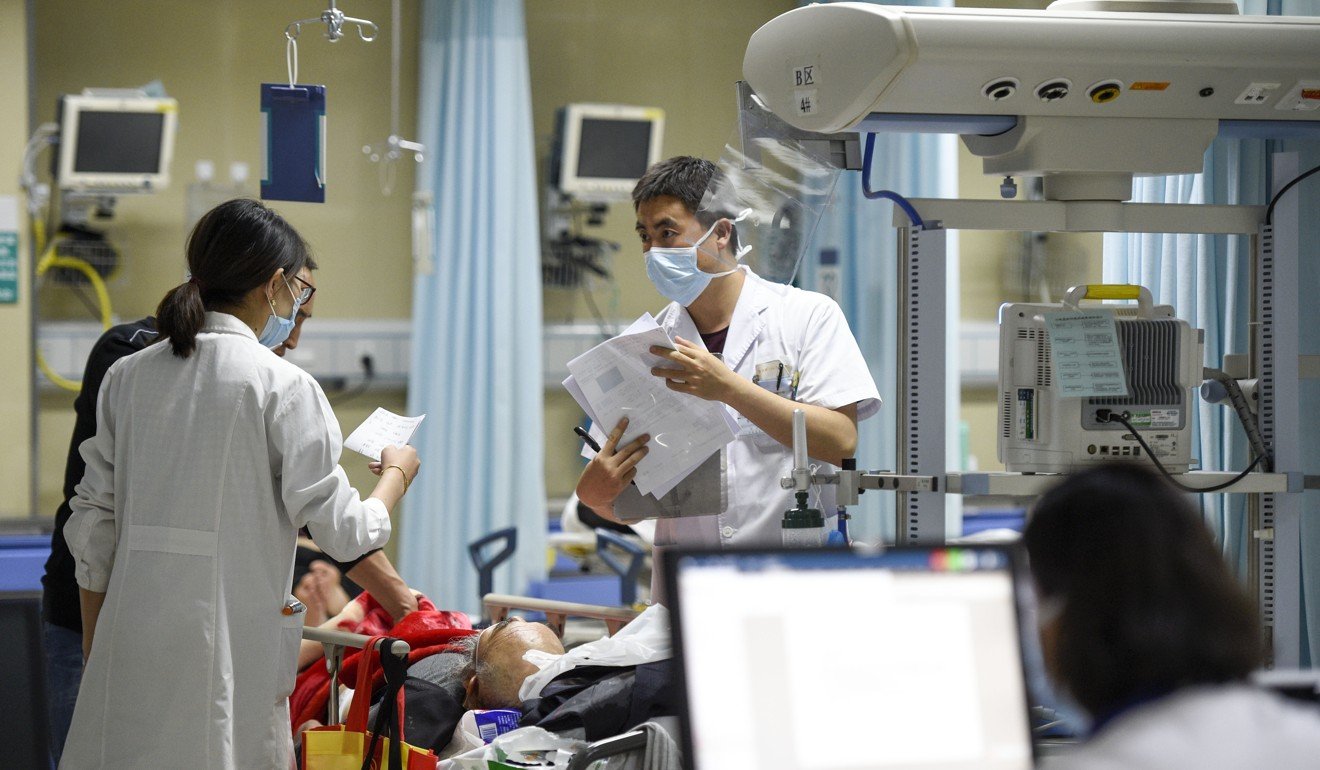
Chinese doctor’s murder overshadows new law to improve public health care
- Fatal stabbing in Beijing hospital was latest in string of attacks on medical staff by patients or their families
- New law is designed to tackle many of the problems blamed for fuelling patient anger, by improving basic health care services and facilities
China’s legislature has passed a law designed to improve the country’s basic health care services amid an ongoing public outcry over the murder of a doctor.
The fatal stabbing was the latest in a string of attacks on medical staff by angry patients and their relatives, with tensions being fuelled by a lack of resources and limited services at many medical facilities.
In the latest incident, the doctor Yang Wen was stabbed in the neck on Christmas Eve following a row with the relatives of a 95-year-old stroke victim at the Civil Aviation General Hospital in Beijing. She died the following day.
State television reported that doctors had said the patient’s family had dismissed repeated suggestions that the woman should undergo additional checks after she suffered a stroke.
Cancer patient arrested for fatal stabbing of doctor in China
But they became angry when the patient’s condition continued to deteriorate and questioned if she was being treated properly.
The woman’s son, Sun Wenbin, has since been arrested on suspicion of intentional homicide.
Despite an outpouring of public anger over the attack and public sympathy for Yang, the patient’s family was reported to have shown little remorse but has transferred the patient to another hospital.
The tragedy overshadowed the passage of the country’s first fundamental and comprehensive law on basic medical and health care services, which was approved on Saturday and will take effect from June 1 next year.
State news agency Xinhua reported that the law is designed to promote medical and health care development in China, ensure citizens have access to services and build a “healthy China.”

The new legislation is intended to empower grass-roots medical institutions by channelling more resources to them.
It mandates that the government should give priority to developing community-level health care facilities and better support medical workers in local communities and poor remote areas.
The law also emphasises the importance of the safety and dignity of medical staff, saying they are entitled to legal protection and should not be threatened or harmed.
Wang Zhenyu, a Beijing lawyer who has worked on high-profile civil and criminal cases, said the law alone could not protect medical staff and prevent conflict with patients.
Traditional Chinese medicine doctors in hot water over ‘longevity drink’
“There are many elements to the protection, such as government investment to improve conditions for patients,” he said.
“The doctors need to have better working conditions, dignity and respect and there should be a credible third party to solve doctor-patient conflicts.”
A 2018 report from the Chinese Medical Doctor Association found that 66 per cent of doctors in China have reported conflicts with patients, with more than 30 per cent experiencing violence.
According to an analysis from Renmin University’s journalism school in March, the media has published 295 reports of attacks on medical staff over the past 10 years.
In total 362 people were injured in these attacks and 24 killed, with the attacker using a weapon in 99 of these incidents.
The most common punishments reported were detentions and fines.

.jpg?itok=H5_PTCSf&v=1700020945)